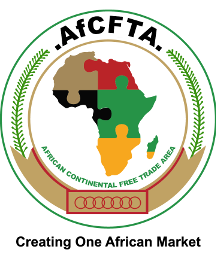Tanzania Ready to Trade Under African Continental Free Trade Area (AfCFTA) Guided Initiative
By Richard Adorsu-

Photo Credit: AfCFTA
NEW AFRICA BUSINESS NEWS (NABN) Accra GHANA- The Deputy Permanent Secretary of the Ministry of Investment, Industry and Trade of the United Republic of Tanzania Mr. Ally Gugu said, “Tanzania is ready to trade under the African Continental Free Trade Area Guided Trade Initiative.” Mr. Gugu elaborated that the Ministry has rolled out awareness campaigns for businesses interested to import intermediary inputs or exporting products to the continent through the AfCFTA Guide Trade Initiative.
This was during the East African Business Council (EABC) – Tanzania Private Sector Foundation (TPSF) GIZ- Support to East African Market-Driven and People-Centered Integration Programme II Private Sector Sensitization Workshop on African Continental Free
Trade Area (AfCFTA) Agreement on Trade in Goods Protocol in Dar es Salaam.
The Deputy Permanent Secretary lauded the President of the United Republic of Tanzania Samia Suluhu Hassan for her stewardship and for championing the AfCFTA Youth and Women Protocol.
The Deputy Permanent Secretary said the Ministry has developed the National Implementation strategy for AfCFTA which will be validated by the private sector. EABC Chairperson Angelina Ngalula represented by Mr. Raphael Maganga, EABC Goodwill Ambassador said “Tanzania’s exports to Africa hit USD 2.5 billion in 2021 increasing by 13% from 2020 while imports stood at USD 1.2 billion” Tanzania has great potential to export rice, Sacks for packing, and kraft paper to the continent. In particular, Tanzania has an untapped potential of USD 136 million from the export of rice alone to the continent.
In her speech, the Chairperson elaborated that under AfCFTA, transport services have the potential to increase by nearly 50 percent. Over 25 percent of intra-African trade gains in all services liberalized under AfCFTA will go to transport alone and nearly 40 percent of the increase in African services will be in the transport sector.
The Chairperson appreciated GIZ- Support to East African Market-Driven and People Centered Integration Programme for partnering with EABC for improving knowledge of the private sector on the AfCFTA protocol.
On his part, Mr. Lamech Wesonga, Economic Policy Advisor on AfCFTA to the EAC urged the private sector to take a proactive role by trading under the AfCFTA. He reiterated GIZ’s commitment to partner with EAC Governments and the private sector to unlock opportunities in the 1.3 billion AfCFTA market.
The private sector workshop on AfCFTA convened 45 businesses in Tanzania who learned about AfCFTA Trade in Goods Protocol and its annexes (especially Rules of Origin, Tariff Concession and Non-Tariff Barriers) and implications to businesses in the EAC bloc. The AfCFTA
Agreement is a clear testimony that the African States have committed to doing more trade and investment among themselves.
The signature of the Agreement Establishing the African Continental Free Trade Area (AfCFTA) on 21 March 2018 marked a historic milestone for economic integration in Africa with intention of creating a market of 1.3 billion people with a combined gross domestic product (GDP) valued at USD 3.4 trillion.
The Agreement envisages boosting intra-African trade through the gradual elimination of tariffs on over 90 African goods and the removal of non-tariff barriers and trade restrictions on goods and services, respectively. The EAC exports of goods to Africa stood at USD 7.9 billion
composing 42% share of EAC total exports of goods to the world (USD 18.7 billion). Top EAC exports to Africa included precious stones, coffee, tea, cement, animal fats, mineral oils & iron and steel. East Africa as a bloc has great potential to export vegetables, tea, rice, coffee, sugar, textile products, soap, sesame seeds, edible oils, tubers and milk to the continent.
For New Africa Business News Richard Adorsu Reports, Africa Correspondent
